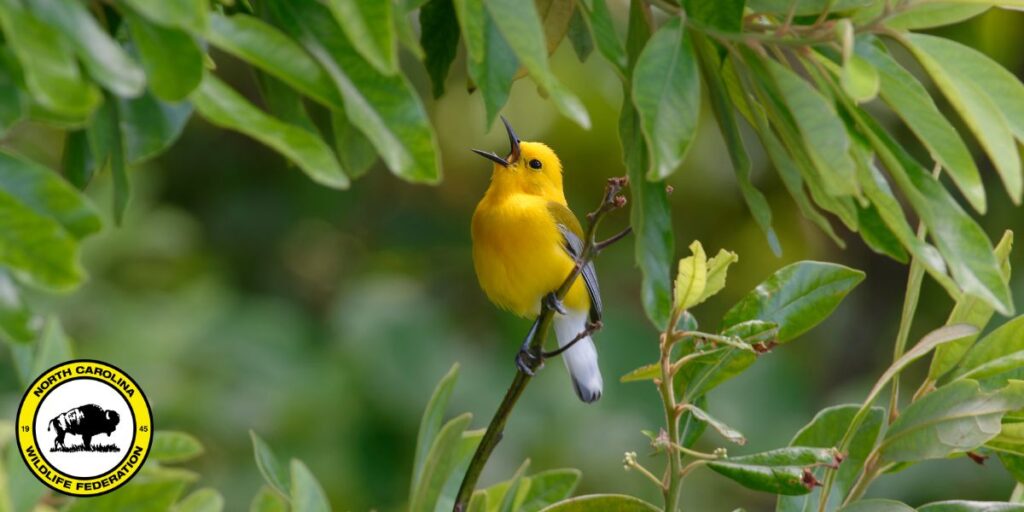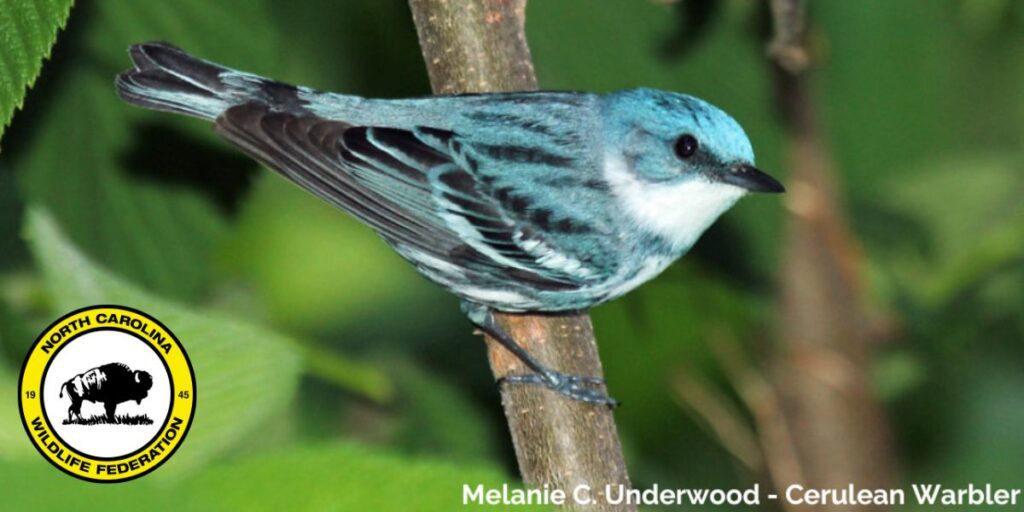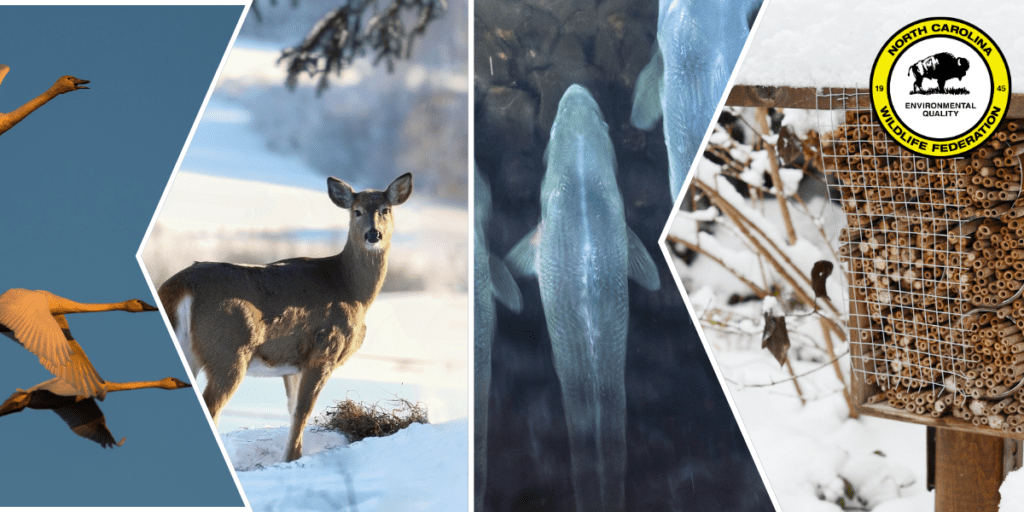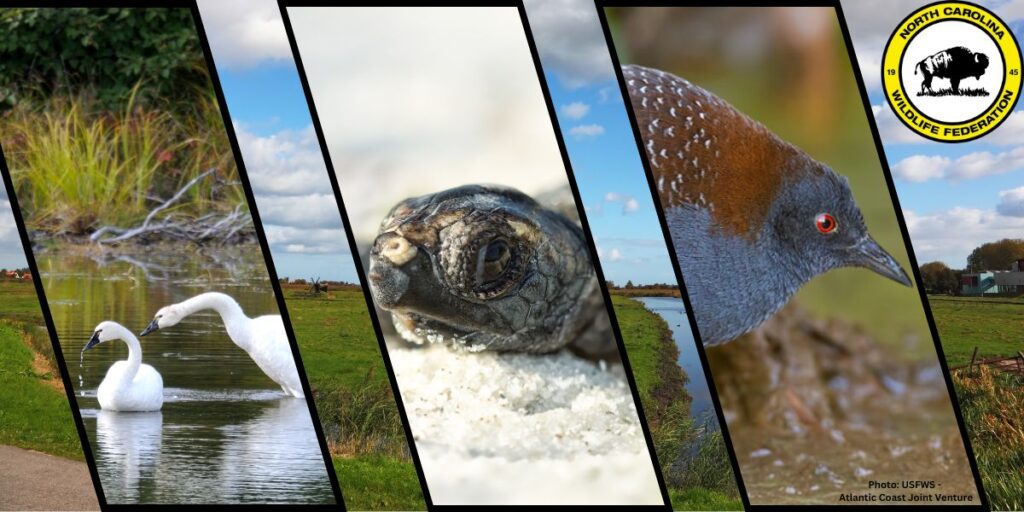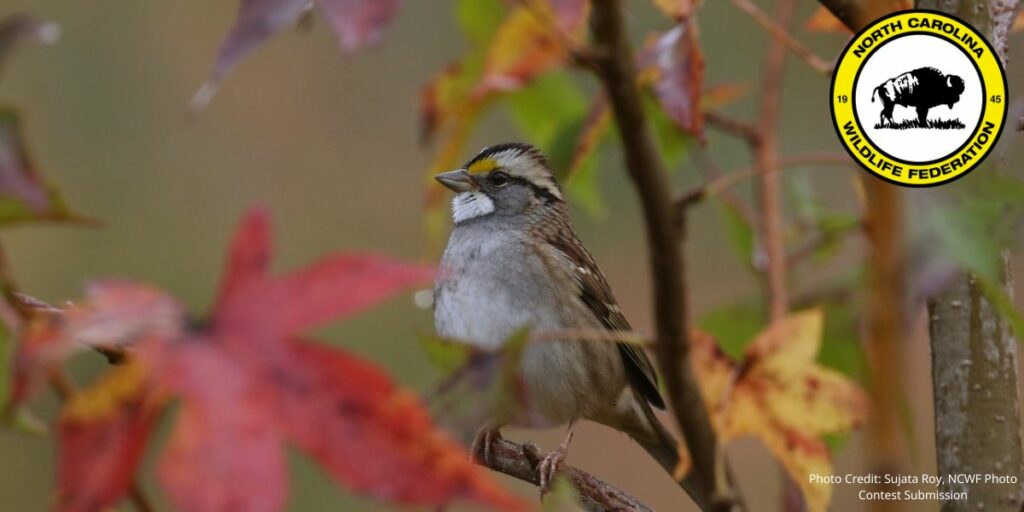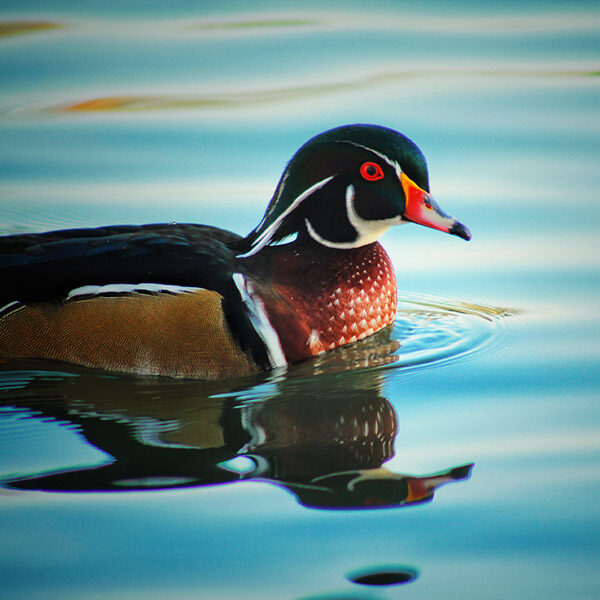Migratory Birds of North Carolina
The Problem
Climate and Habitat Changes, Collisions with Man-Made Structures
Migratory birds found in North Carolina range from game species such as dove and waterfowl to raptors and neotropical songbirds. These birds face many challenges including climate change, habitat loss, collisions with buildings and other man-made structures during migration, and reduction of critical protein sources due to harmful chemicals sprayed on lawns.
The Solution
Planting of Native Species
NCWF is working to expand native habitat, wildlife-friendly gardens, and open spaces in cities, towns and rural communities. We’re also engaging communities in protecting and restoring habitat for migratory birds that breed in North Carolina and refuel during migration.
Our Garden for Wildlife programs focus on providing food for birds during migration stopovers. This benefits the nearly 95 percent of the state’s terrestrial bird species that feed their young a protein-rich diet of insects, mostly caterpillars and worms.
Through NCWF’s chimney swift tower construction program, large nesting box program, and osprey nesting platform project, migratory birds have increased access to safe nesting areas.
We’re also staunch supporters and defenders of federal and state conservation policy affecting migratory birds, including the Migratory Bird Treaty Act and the Clean Water Act.
What We're Doing
Outcomes & Impact
- 12,000+ Certified Wildlife Habitats in North Carolina
- 100s chimney swift towers, nest boxes, and nesting platforms installed
- Support responsible renewable energy development and promote research to help solve conflicts between wind energy development and migratory birds
- Increase and protect diverse migratory bird habitats ranging from old growth forests to early successional meadowscapes on public and private lands through cost share programs and public land management plans
- Defend wetland ecosystems protection laws which safeguard waterfowl, wading birds, and neo tropical song birds
- Work to protect hardwood bottomland forests
Recent News
Upcoming Events
How You Can Help
Join the Cause and Make an Impact
Help NCWF preserve wildlife and wild places for our children and future generations. Learn More.


